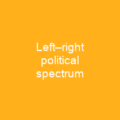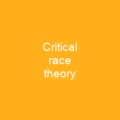What is an Ideology?
An ideology is a set of beliefs or values attributed to a person or group, with practical elements being as prominent as theoretical ones. Imagine it like the blueprint of a house; just as blueprints guide the construction, ideologies shape how people think and act in society.
The Origins of Ideology
How Did the Term Originate?
The term ‘ideology’ was coined by Antoine Destutt de Tracy in 1796 as the ‘science of ideas.’ He developed this concept while in prison, aiming to create a rational system that could oppose irrational impulses. Initially, it was applied primarily to economic, political, and religious theories but has since expanded its scope.
The Evolution of Ideology
How Did Napoleon Use the Term?
Napoleon Bonaparte famously used ‘ideologues’ as a term to describe his opponents. This usage shifted the connotation towards negative connotations, making ideology synonymous with something that was not practical or real.
The Modern Understanding of Ideology
Is Ideology Always Negative?
Today, the term is often neutral in analysis, referring to differing political opinions and views of social groups. Definitions emphasize patterning and contingent claims to truth, with ideas forming clusters of normative concepts and representations of power relations.
The Key Characteristics of Ideology
What Makes an Idea an Ideology?
Ideologies have the power over cognition, guiding evaluations, providing guidance for action, and being logically coherent. They are like a map that guides people through life, shaping their perceptions and actions.
The Marxist Interpretation
How Does Marxism View Ideology?
The Marxist interpretation views ideology as a system of false consciousness reflecting economic relationships and perpetuating the interests of the dominant class. It’s like wearing tinted glasses that distort reality to benefit those in power.
Guy Debord’s Society of the Spectacle
How Does Commodification Colonize Society?
According to Guy Debord, the ‘Society of the Spectacle’ describes how commodification colonizes society, reducing it to a mere representation. It’s as if everything is just a show, and people are merely spectators.
The Role of Leadership
What Skills Do Leaders Need?
A leader’s skills include audacity, fanatical conviction, and the ability to inspire blind faith in the masses. Charlatanism is indispensable; leaders often imitate both friends and foes. They encourage unity through great projects and industry while fostering suspicion among dissenters.
The Influence of Psychological Factors
Why Do People Adopt Certain Ideologies?
Ideologies can be influenced by psychological factors, including human motives to understand the world, avoid existential threat, and maintain valued interpersonal relationships. Theories such as just-world theory, terror management theory, and system justification theory attempt to explain why people adopt certain ideologies.
The Study of Ideology in Social Sciences
How Do Sociologists Define Ideology?
Sociologists define ideology as cultural beliefs justifying inequality, with dominant groups using it to maintain power over non-dominant groups. These ideas are passed through major institutions and have evolved throughout history, encompassing racism, sexism, heterosexism, ableism, and ethnocentrism.
Quotations Illustrating the Concept
‘Ideology is a unitary object that incorporates complex sets of meanings with social agents and processes.’ — Terry Eagleton
‘Ideologies are passed through major institutions and have evolved throughout history, encompassing racism, sexism, heterosexism, ableism, and ethnocentrism.’ — Sally Haslanger
‘The concept of ideology is crucial in understanding social and political life through a semantic analysis.’ — Hannah Arendt
The Future of Ideology
Is There Such a Thing as Post-Ideology?
Some commentators argue that we live in a post-ideological age, while others believe that research generates ongoing ideology. The concept remains crucial for understanding social and political life.

In conclusion, ideology is a complex and multifaceted concept that shapes our understanding of the world. Whether we live in an age of post-ideology or not, it remains a powerful tool for shaping human thought and action. Understanding ideology helps us navigate the complexities of social and political life more effectively.
You want to know more about Ideology?
This page is based on the article Ideology published in Wikipedia (retrieved on February 12, 2025) and was automatically summarized using artificial intelligence.







